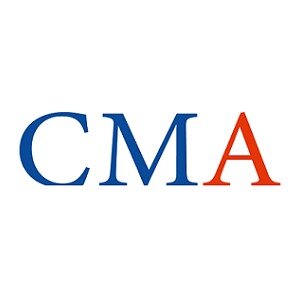Best Disability Lawyers in Haiphong
Share your needs with us, get contacted by law firms.
Free. Takes 2 min.
List of the best lawyers in Haiphong, Vietnam
About Disability Law in Haiphong, Vietnam
Disability law in Haiphong, Vietnam, is designed to protect the rights and welfare of individuals with disabilities. This involves ensuring equal opportunities, access to education, employment, and healthcare, as well as promoting an inclusive society. The Vietnamese government, following international commitments such as the UN Convention on the Rights of Persons with Disabilities (CRPD), has made significant efforts to improve the legal framework in recent years. However, challenges remain, particularly in the implementation of these laws and ensuring adequate social services.
Why You May Need a Lawyer
There are several situations where individuals or families may seek legal assistance concerning disability issues:
- Discrimination in the workplace due to a disability or perceived disability.
- Denial of access to proper education for disabled children.
- Challenges in accessing disability benefits or social services.
- Issues related to housing discrimination or lack of accessibility.
- Guardianship or legal capacity cases involving disabled individuals.
- Facing bureaucratic or legal obstacles when trying to access assistive technology or medical devices.
A lawyer can help navigate the complex legal landscape, advocate for rights, and ensure that existing laws and regulations are upheld.
Local Laws Overview
Several key pieces of legislation and regulatory frameworks address disability issues in Haiphong and Vietnam at large:
- The Law on Persons with Disabilities (2010): This is the primary legal document outlining the rights and obligations concerning individuals with disabilities, including access to education, employment, health, and social protection.
- The Labor Code: Provisions within the Labor Code address non-discrimination in employment for disabled persons and mandate reasonable accommodations.
- National Action Plan to Support Persons with Disabilities: This strategic plan focuses on enhancing the living standards and inclusivity for disabled persons across Vietnam.
These laws focus on promoting the integration and contribution of persons with disabilities into society, ensuring equal opportunity and access to public services.
Frequently Asked Questions
What is the purpose of Vietnam’s Law on Persons with Disabilities?
The law aims to protect the rights and welfare of persons with disabilities, ensuring they have equal opportunities in education, employment, and access to health services.
How does the Vietnamese government support disabled individuals in Haiphong?
The government supports through subsidies, vocational training programs, and ensuring access to education and healthcare services as part of their national support strategy.
Can I file a complaint if I face discrimination due to my disability?
Yes, individuals facing discrimination in employment, education, or any public service due to a disability can file a complaint with relevant authorities or seek legal support.
What types of disabilities are covered under Vietnamese law?
Vietnamese law broadly covers both physical and mental disabilities, ensuring rights and protection for a wide range of disabilities.
Are there provisions for workplace accommodations for disabled individuals?
Yes, employers are required to provide reasonable accommodations to enable disabled employees to perform their jobs effectively.
What legal rights do disabled students have in Haiphong?
Disabled students are entitled to inclusive education, and schools are required to make necessary accommodations for their participation and success.
Is public transportation accessible for disabled individuals in Haiphong?
While efforts are being made, accessibility in public transportation is still a work in progress, with developments in infrastructure ongoing.
Are there any financial benefits available for persons with disabilities?
Yes, eligible individuals can receive financial assistance such as social allowances, health insurance, and subsidies for assistive devices.
How can I access legal aid for disability-related issues?
Legal aid can be accessed through local legal aid offices, NGOs, or by hiring a lawyer specializing in disability law.
What should I do if my child is denied admission to a school because of a disability?
It's important to contact legal advisors or relevant authorities who can intervene and ensure compliance with educational laws safeguarding disabled children's rights.
Additional Resources
There are multiple resources available for those seeking legal advice in disability matters in Haiphong, including:
- The National Committee for Persons with Disabilities of Vietnam: Offers a range of support and resources.
- Local Legal Aid Centers: Provide free or low-cost legal services for persons with disabilities.
- Disability Rights NGOs: Organizations such as the Vietnam Federation on Disability offer support and advocacy.
- Haiphong Department of Labor, Invalids, and Social Affairs: Offers assistance in accessing social services and benefits.
Next Steps
If you seek legal assistance in disability-related issues, consider the following steps:
- Identify and clearly document the issue or discrimination you are facing.
- Reach out to a local legal aid center or consult with a lawyer specializing in disability law.
- Contact relevant governmental bodies to report your issue and seek guidance.
- Gather any necessary documentation or evidence that supports your case.
- Consider advocacy groups or NGOs that can offer additional support and advice.
Taking informed action can help ensure your rights or those of a loved one are protected under the law.
Lawzana helps you find the best lawyers and law firms in Haiphong through a curated and pre-screened list of qualified legal professionals. Our platform offers rankings and detailed profiles of attorneys and law firms, allowing you to compare based on practice areas, including Disability, experience, and client feedback.
Each profile includes a description of the firm's areas of practice, client reviews, team members and partners, year of establishment, spoken languages, office locations, contact information, social media presence, and any published articles or resources. Most firms on our platform speak English and are experienced in both local and international legal matters.
Get a quote from top-rated law firms in Haiphong, Vietnam — quickly, securely, and without unnecessary hassle.
Disclaimer:
The information provided on this page is for general informational purposes only and does not constitute legal advice. While we strive to ensure the accuracy and relevance of the content, legal information may change over time, and interpretations of the law can vary. You should always consult with a qualified legal professional for advice specific to your situation.
We disclaim all liability for actions taken or not taken based on the content of this page. If you believe any information is incorrect or outdated, please contact us, and we will review and update it where appropriate.









